Klicken Sie auf Einstellungen, falls Sie diese ablehnen möchten.

The services offered at our heart centre include the entire range of outpatient diagnostics. Diagnostic cardiac catheter examinations with coronary angiography can also be performed at the Klinik im Park.
Diagnostic Options at the Heart Centre
Resting ECG
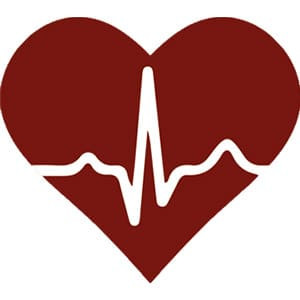
Cardiac output measurement at rest
The resting ECG is one of the routine procedures and is carried out almost every time the heart is examined in our cardiological practice. Electrodes are used to record the cardiac current curves while the patient is lying down. This allows conclusions to be drawn about possible cardiac arrhythmias, reduced blood flow to the heart, possible previous heart attacks or other cardiac diseases. The examination is painless and harmless.
Long-term ECG
Cardiac output measurement over several days
Irregularly occurring cardiac arrhythmias can be recorded with the long-term ECG. Electrodes are attached to the upper body and the cardiac waveforms are continuously recorded for a period of 24 hours to 7 days with a small portable recorder. Long-term ECG is often used in cases of suspected cardiac arrhythmia, dizziness of unknown origin, fainting spells or after an unclear stroke. Due to the longer recording time, more cardiac arrhythmias can be diagnosed and detected.
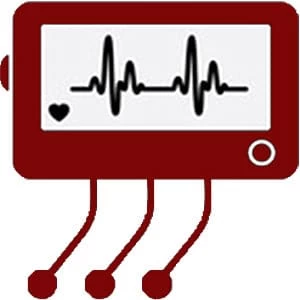
Exercise ECG / Ergometry
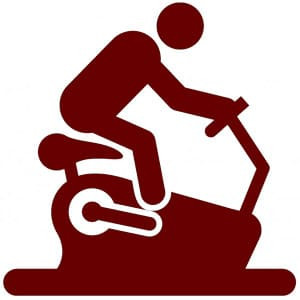
Heart rate measurement on the bike
This ECG is performed during controlled physical exertion on the bicycle ergometer in our cardiology practice. In addition to the heart flows, the patient's blood pressure and pulse behaviour are also recorded. The stress ECG allows conclusions to be drawn about possible circulatory disorders of the heart muscle and provides general information about the patient's general stress tolerance.
Transthoracic echocardiography (TTE)
Cardiac ultrasound through the chest wall
Echocardiography uses ultrasound to visualise the structure of the heart through the chest wall. Among other things, it can assess how big the heart is, whether the heart chambers are pumping well and whether the heart valves are working properly. This painless examination is done while the patient is lying down. The coronary vessels cannot be shown on ultrasound because they are too small for this. Therefore, conclusions about the blood supply can only be drawn indirectly from the heart's pumping function during this examination.
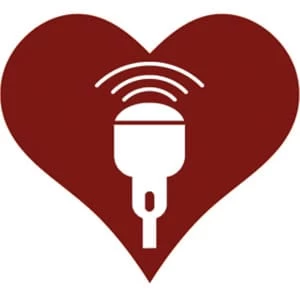
Transesophageal echocardiography (TEE)
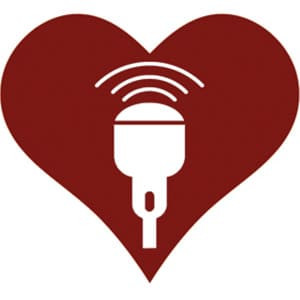
The ultrasound examination of the heart through the oesophagus in the performance of a gastroscopy. Under local anaesthesia or minor anaesthesia, an ultrasound probe is inserted into the oesophagus in order to be able to see the heart with particularly good resolution from inside the chest cavity. Since the oesophagus runs directly behind the heart, the individual structures of the heart can be visualised much better than in the examination through the chest wall (TTE). A frequent question is the search for clots in the heart or in the case of heart or heart valve defects. The aorta can also be assessed.
More about the TEEStress Echocardiography
Echocardiography under physical and drug stress
The regional and global pumping function of the heart is assessed with the help of ultrasound during physical activity on the bicycle ergometer or under medical stress in order to draw conclusions about the blood supply.
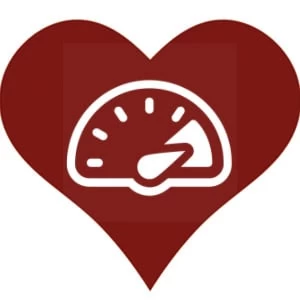
Long-term blood pressure measurement
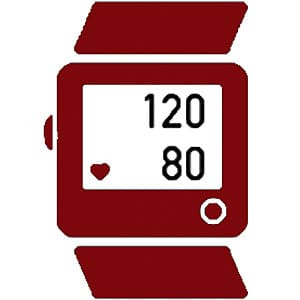
24-hour blood pressure measurement
It is not uncommon for the doctor's blood pressure measurements not to reflect the patient's blood pressure behaviour in everyday life. This can be due, for example, to the fact that the patient is tense during the visit to the doctor. With a small blood pressure recorder, the blood pressure in everyday life can be measured over 24 hours. This is a more accurate method than spot measurements.
Diagnostics of congenital heart defects
Heart defects in adults
Dr. Olaf Franzen specialises in the diagnosis and treatment of congenital heart defects in adults.

Laboratory tests
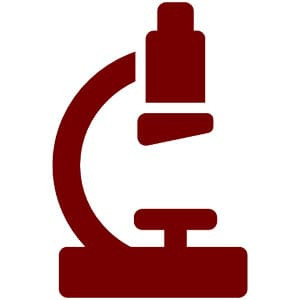
Laboratory tests that we offer in cooperation with the qualified laboratory team w:
- Blood count / haematology
- Heart attack diagnostics
- Coagulation examination
- Organ markers
- Metabolic markers
- Immune system
- Hormones
- Vitamins and minerals
- Proteins
Diagnostic Options at the Klinik im Park
Coronary angiography in the left heart

via left heart catheter (arterial catheter)
This examination is performed when there is a strong suspicion of the presence of coronary heart disease or to rule out coronary heart disease. A thin tube is advanced to the heart via a hand or groin artery. Contrast medium is applied to the coronary arteries through this tube so that an internal outflow of the coronary arteries can be seen in the X-ray. This makes it possible to visualise constrictions. Often, if necessary, these narrowings can also be removed in the same session by using a balloon catheter. It may be necessary to implant a stent to secure the result. The length of stay in hospital is about 6 to 24 hours.
More...Pressure measurement in the right heart
via right heart catheter (venous catheter)
A cardiac catheterisation of the right heart is performed to assess the pressure in the pulmonary circulation. A thin tube is advanced through the right heart via an arm, neck or groin vein into the vessels of the lungs to measure the pressure there. This can be used to very accurately assess short circuits of the heart, the effects of valvular defects or heart failure.
Read more about cardiac catheterisation
After diagnostics have been completed, various therapies are available to you at the Heart Centre as well as cardiological interventions by means of cardiac catheterisation at the Klinik im Park in Zurich.